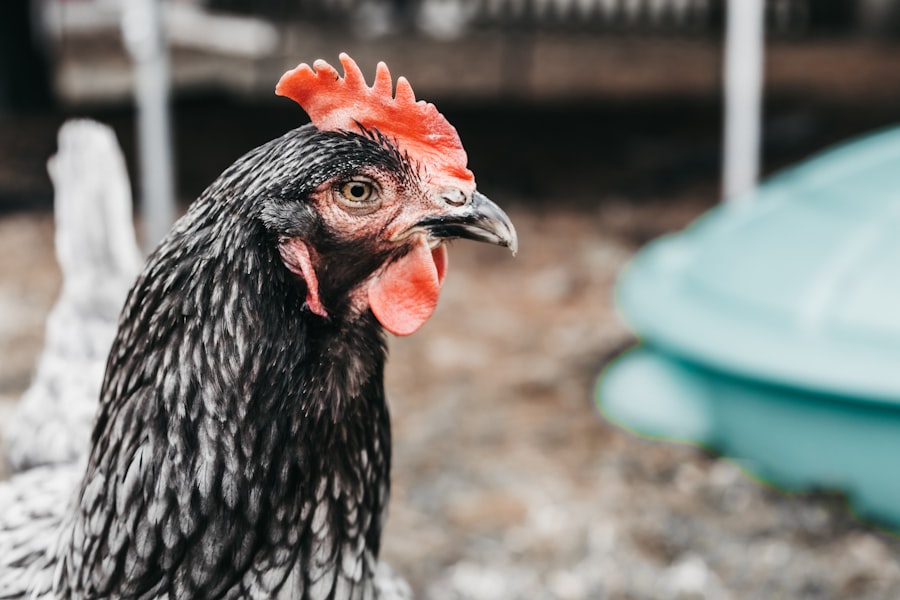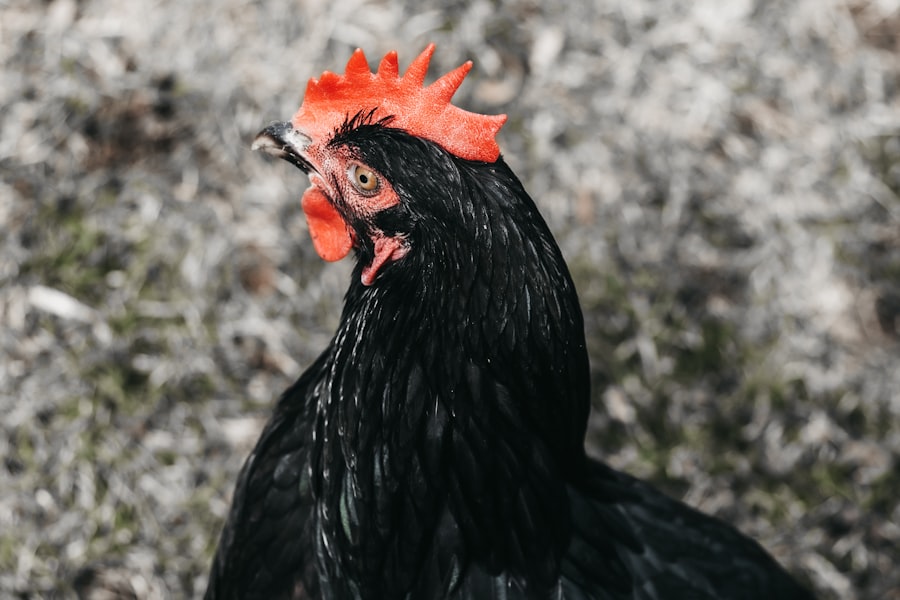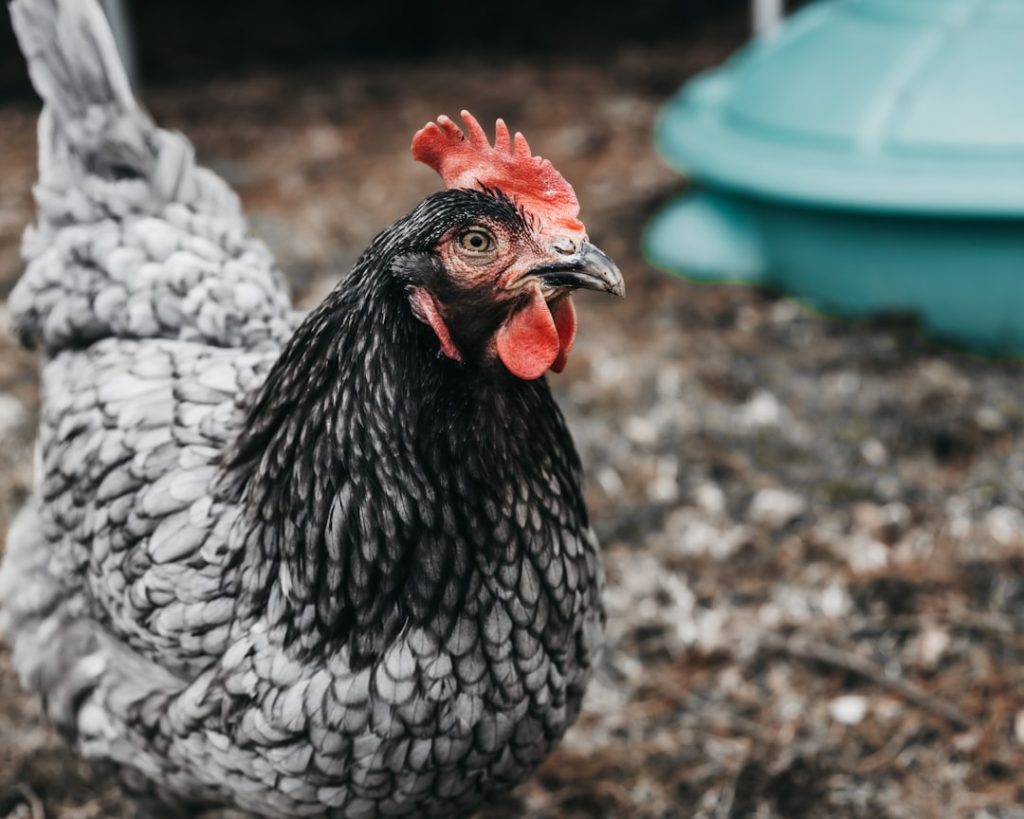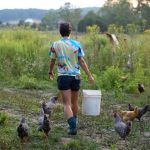Ensuring the safety of chickens is paramount for poultry owners, regardless of whether the birds are raised for egg production, meat, or as companion animals. Providing a secure and healthy environment is essential for the well-being of the flock. This article addresses various aspects of chicken safety, including coop design and maintenance, predator protection, health and safety protocols, proper nutrition, handling and transportation techniques, and relevant legal considerations.
Chickens face numerous threats, such as predators, diseases, and accidents. Implementing appropriate safety measures is crucial for ensuring the flock’s well-being and longevity. From the initial acquisition of chickens, it is vital to prioritize their safety and take proactive steps to protect them from potential harm.
By adhering to the guidelines presented in this article, poultry owners can create a safe and nurturing environment that promotes the health and prosperity of their chickens.
Table of Contents
- 1 Secure Coop Design and Maintenance
- 2 Predators and How to Protect Against Them
- 3 Health and Safety Measures for Chickens
- 4 Proper Feeding and Nutrition for Chickens
- 5 Tips for Handling and Transporting Chickens Safely
- 6 Legal Considerations for Keeping Chickens Safe
- 7 FAQs
- 7.1 What are some common predators that pose a threat to chickens?
- 7.2 How can I keep my chickens safe from predators?
- 7.3 What are some signs that my chickens may be under threat from predators?
- 7.4 Are there any plants or landscaping features that can help keep chickens safe from predators?
- 7.5 Can I use guard animals to protect my chickens from predators?
Key Takeaways
- Keeping chickens safe requires a combination of secure coop design, protection against predators, health and safety measures, proper feeding and nutrition, and safe handling and transportation.
- A secure coop design and regular maintenance are essential for keeping chickens safe from predators and environmental hazards.
- Predators such as foxes, raccoons, and birds of prey can pose a threat to chickens, so it’s important to implement measures such as fencing, predator-proofing the coop, and using deterrents to protect against them.
- Health and safety measures for chickens include regular health checks, vaccination, parasite control, and providing a clean and comfortable living environment.
- Proper feeding and nutrition for chickens involve providing a balanced diet, access to clean water, and avoiding toxic or harmful substances in their environment.
- When handling and transporting chickens, it’s important to do so gently and securely to minimize stress and prevent injuries.
- Legal considerations for keeping chickens safe may include local regulations on coop design, zoning laws, and permits for keeping chickens.
Secure Coop Design and Maintenance
Coop Design and Maintenance
Regular maintenance is crucial to ensure that the coop remains secure and in good condition. To maintain a secure coop, it is important to regularly inspect the structure for any signs of wear and tear. This includes checking for loose or damaged wire mesh, repairing any holes or gaps that could allow predators to enter, and ensuring that the roof is intact and free from leaks.
Coop Cleaning and Hygiene
Additionally, keeping the coop clean and free from debris will help prevent the spread of diseases and parasites. By implementing these measures, you can create a safe and comfortable living space for your chickens.
Securing the Surrounding Area
In addition to the coop itself, it is important to secure the surrounding area to prevent predators from gaining access to the flock. This may involve installing fencing or other barriers to keep out predators such as foxes, raccoons, and birds of prey. By taking these precautions, you can minimize the risk of predation and create a safe outdoor space for your chickens to roam.
Predators and How to Protect Against Them

Predators pose a significant threat to the safety of chickens. Common predators include foxes, raccoons, coyotes, birds of prey, and even domestic pets such as cats and dogs. To protect against these threats, it is important to implement various measures to deter predators and keep your flock safe.
One effective way to protect against predators is to install secure fencing around the coop and outdoor run. This can help prevent predators from gaining access to the chickens and provide an added layer of security. Additionally, using hardware cloth with small openings can help prevent predators from reaching through the wire mesh to harm the chickens.
Another important consideration is securing the coop at night when chickens are most vulnerable to nocturnal predators. This may involve locking the coop door with a sturdy latch or using predator-proof locks to prevent unauthorized entry. Additionally, installing motion-activated lights or alarms can help deter predators from approaching the coop.
In some cases, it may be necessary to use deterrents such as predator urine or sound devices to discourage predators from approaching the coop. It is also important to regularly inspect the perimeter of the coop for signs of potential entry points and take proactive measures to reinforce security as needed. By implementing these strategies, you can help protect your flock from potential predators and create a safe environment for your chickens.
Health and Safety Measures for Chickens
Maintaining the health and safety of your chickens is essential for their well-being and productivity. This involves implementing various measures to prevent diseases, injuries, and other health issues that can affect the flock. By following proper hygiene practices, providing regular veterinary care, and monitoring the flock for signs of illness or distress, you can help ensure that your chickens remain healthy and safe.
One important aspect of maintaining chicken health is providing a clean living environment. This includes regularly cleaning the coop, removing soiled bedding, and ensuring that food and water containers are kept clean and free from contamination. Additionally, providing adequate ventilation and space in the coop can help prevent respiratory issues and other health problems.
Regular veterinary care is also essential for maintaining chicken health. This may involve scheduling routine check-ups with a poultry veterinarian, administering vaccinations as needed, and seeking prompt medical attention for any signs of illness or injury. By staying proactive about veterinary care, you can help prevent potential health issues from escalating and ensure that your flock remains healthy and safe.
It is also important to monitor the flock for signs of illness or distress on a regular basis. This may involve observing their behavior, checking for any changes in appetite or egg production, and conducting regular health checks to identify any potential issues early on. By staying vigilant and responsive to the needs of your flock, you can help maintain their health and safety.
Proper Feeding and Nutrition for Chickens
Proper feeding and nutrition are essential for keeping chickens healthy and productive. A well-balanced diet can help support overall health, egg production, and growth in young chickens. By providing a nutritious diet that meets their specific dietary needs, you can help ensure that your flock remains healthy and thriving.
Chickens require a diet that is rich in protein, vitamins, minerals, and other essential nutrients to support their growth and development. This may include feeding them a commercial poultry feed that is formulated to meet their nutritional requirements or providing a balanced diet of grains, seeds, fruits, vegetables, and protein sources such as mealworms or insects. In addition to providing a nutritious diet, it is important to ensure that chickens have access to clean water at all times.
Water is essential for hydration, digestion, and overall health in chickens. Regularly cleaning and refilling water containers can help prevent contamination and ensure that chickens have access to clean water throughout the day. It is also important to consider the specific dietary needs of different chicken breeds and life stages.
For example, laying hens may require additional calcium to support egg production, while young chicks may require a higher protein diet to support growth. By tailoring their diet to meet their specific needs, you can help ensure that your flock receives the nutrition they need to thrive.
Tips for Handling and Transporting Chickens Safely

Approaching and Handling Chickens
When handling chickens, it’s essential to approach them calmly and gently to minimize stress. This involves using slow movements, speaking softly, and avoiding sudden gestures that could startle them. Additionally, supporting their body properly by cradling them with both hands can help prevent injuries and keep them calm during handling.
Transporting Chickens Safely
When transporting chickens in a vehicle or carrier, it’s crucial to provide adequate ventilation and protection from extreme temperatures. This involves using a well-ventilated carrier with secure latches to prevent escape and minimize stress during transportation. Providing a comfortable bedding material can also help keep chickens secure and comfortable during transit.
Planning for Longer Trips
When planning trips with chickens, it’s essential to consider the duration of transportation. Providing food and water during longer journeys can help keep chickens hydrated and nourished throughout the trip. Taking breaks to allow chickens to rest and stretch their legs can also help minimize stress during transportation. By following these tips, you can ensure that your flock remains comfortable and secure during travel.
Legal Considerations for Keeping Chickens Safe
When keeping chickens, it is important to be aware of legal considerations that may impact their safety and well-being. This includes understanding local zoning laws, regulations related to animal welfare, and other legal requirements that may apply to poultry ownership. By staying informed about these legal considerations, you can ensure that you are in compliance with relevant laws and regulations while keeping your chickens safe.
One important legal consideration for keeping chickens is zoning laws that regulate where poultry can be kept within a community. Some areas may have restrictions on the number of chickens allowed per property or specific requirements related to coop design and maintenance. By familiarizing yourself with local zoning laws, you can ensure that you are in compliance with regulations while providing a safe environment for your flock.
In addition to zoning laws, it is important to be aware of regulations related to animal welfare that may impact poultry ownership. This may include requirements related to housing conditions, access to food and water, veterinary care, and other aspects of chicken care. By understanding these regulations and taking proactive measures to meet legal requirements related to animal welfare, you can help ensure that your flock remains safe and well-cared for.
It is also important to consider liability issues related to poultry ownership. This may include taking measures to prevent potential risks such as disease transmission or property damage caused by chickens. By implementing safety measures such as secure coop design, regular veterinary care, and proper waste management, you can help minimize potential liability issues while keeping your chickens safe.
By staying informed about legal considerations related to poultry ownership, you can ensure that you are in compliance with relevant laws and regulations while prioritizing the safety of your flock. Whether you are considering keeping chickens for the first time or have been raising poultry for years, staying informed about legal considerations is essential for maintaining a safe and responsible poultry operation.
If you’re looking for tips on how to keep your chickens safe, you might want to check out this article on the Hannah Montana Chicken Coop. It provides valuable information on how to create a secure and comfortable environment for your feathered friends.
FAQs
What are some common predators that pose a threat to chickens?
Some common predators that pose a threat to chickens include foxes, raccoons, coyotes, dogs, cats, hawks, owls, and snakes.
How can I keep my chickens safe from predators?
To keep chickens safe from predators, it is important to secure their coop and run with sturdy fencing, lockable doors, and predator-proof latches. Additionally, using motion-activated lights or sound devices can help deter predators. Supervising free-range chickens and providing a safe shelter at night can also help protect them from predators.
What are some signs that my chickens may be under threat from predators?
Some signs that your chickens may be under threat from predators include missing or injured chickens, disturbed or damaged coop or run, and evidence of digging or attempts to breach the fencing.
Are there any plants or landscaping features that can help keep chickens safe from predators?
Planting thorny bushes or shrubs around the perimeter of the coop and run can help deter predators. Additionally, creating a barrier of rocks or gravel around the fencing can make it more difficult for predators to dig under.
Can I use guard animals to protect my chickens from predators?
Yes, guard animals such as dogs, llamas, or geese can be used to help protect chickens from predators. These animals can help deter predators and alert you to potential threats. However, it is important to properly train and supervise guard animals to ensure the safety of the chickens.
Meet Walter, the feathered-friend fanatic of Florida! Nestled in the sunshine state, Walter struts through life with his feathered companions, clucking his way to happiness. With a coop that’s fancier than a five-star hotel, he’s the Don Juan of the chicken world. When he’s not teaching his hens to do the cha-cha, you’ll find him in a heated debate with his prized rooster, Sir Clucks-a-Lot. Walter’s poultry passion is no yolk; he’s the sunny-side-up guy you never knew you needed in your flock of friends!







